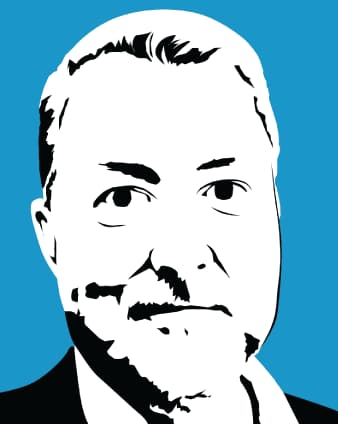For perhaps the first time in history, organizations can now tie their operations into today's global information flows, which come from social media, network-connected sensors, and even our legacy IT systems. These data flows can no longer be ignored.
Ideally, tapping into the big-data stream will foster strategic insight that we can exploit for the benefit of our businesses.
Making traditional business intelligence seem parochial and slow-moving in comparison, big data has set the stage for organizations and the executives that guide them to make critical decisions based on real-time insights into all that is known about any given aspect of their business. Or at least, that's the ultimate vision of what's possible; most organizations will get there incrementally.
There's little doubt, however, that big-data ideas are already working their way through the IT hype cycle. Yet the concepts are driven by genuine changes in the marketplace that are enabling significant, even striking, new forms of business innovation.
Companies in the telecommunications, health and energy industries have all recently harnessed public data flows to drive remarkable results. This includes improved customer retention and much faster, more efficient business processes, all based on having timely data insights.
Interestingly, technology doesn't always play the starring role in this story, though it's often key to success: You may need to use tools such as in-memory databases, new technical models like MapReduce that process vast data streams, and self-learning algorithms that can uncover business insights that you didn't even know to ask for.
If the early returns are a good indicator of the trend, how will businesses go about exploiting big data to unleash real innovation and competitive advantage? How should they best respond to the imperative that big data represents? Just as important, who will make it happen?
Creating a data-driven business culture and then developing matching infrastructure and processes to support it is a tall order. It's one that requires deft leadership that is both technically competent and well connected to the business.
More like this
- CIOs Can Be Catalysts for Change in the Postdigital Enterprise
- 5 Strategic Tips for Avoiding a Big Data Bust
- CIOs Struggle with the Great Talent Hunt
- on IDG Answers How can I recover data from a damaged SD card?
There are only a couple of roles in most organizations that meet that description: the CIO and the CMO.
One could make the case that in today's increasingly commoditized and outsourced IT world, big data is a chance for a CIO to finally focus on information as the most important currency of the realm, to rise above the less-strategic task of infrastructure management, and finally drive the business.
However, today's CMOs are increasingly becoming the orchestrators of market-connected business functions and building their own IT capabilities to achieve their objectives. In fact, more and more companies are adding a "CIO of marketing" title, and Gartner has predicted that the CMO's technology budget will eclipse the CIO's in a few short years.
Or instead of focusing on their differences and fighting for the same budgets, the CIO and CMO can come together at this critical juncture in the evolution of their business. They can realize that they have the resources to genuinely support each other, that they each have core competencies that the other can learn from, and that they have overlapping yet reinforcing responsibilities for improving how the business works.
Is this the right way? For most organizations, we don't know yet. But one thing is clear: Big data is coming, and someone is going make it change your organization. Who will it be?
Jul 17, 2015
